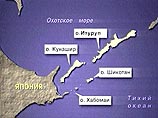Russia agrees to settle territorial dispute with Japan
The majority of Russians are strongly against making territorial concessions to Japan
The Russian Foreign Minister Sergei Lavrov has stunned the Russian society with the statement about the government's intention to follow the declaration that was concluded with Japan in 1956. The document stipulates handing over two of the Kuril Islands (Khabomai and Shikotan) to Japan. The minister released the statement on the matter on Sunday. Sergei Lavrov added, however, that it was the only concession that Japan could hope for. In return, the Japanese government is supposed to sign a peace treaty. Needless to say that the statement from the Russian foreign minister stirred up numerous comments from both the Russian press and the expert community.
Scientist of politics, Aleksey Makarkin, the chairman of the analytical department of the center for political technologies said that the statement from Sergei Lavrov did not contain any groundbreaking information, for both the Soviet and the Russian administrations recognized the opportunity to hand over the two islands. In fact, it will not pose any threat to Russia's political or economic interests, because Japan will not agree to accept only two islands from the four. Sergei Lavrov's variant is absolutely unacceptable for Tokyo. Russia, however, has exercised its good will and readiness to compromise.
Sergei Karaganov, the chairman of the council for foreign and defense policy, believes that the Russian foreign minister released the statement to prepare the society for the possible return of the two islands to Japan. The initiative on the matter, Karaganov believes, originates from the Kremlin, not from the foreign ministry. The Kremlin's variant of the territorial dispute is quite acceptable for Russia, because the return of the two islands in the Pacific will keep the water area of the Sea of Okhotsk closed.
 It is noteworthy that the Soviet administration refused to consider the issue about the return of the two islands to Japan in 1960, because Tokyo prolonged the security treaty with the USA. USSR officials considered the treaty dangerous, as US missiles could have been deployed on those islands.
It is noteworthy that the Soviet administration refused to consider the issue about the return of the two islands to Japan in 1960, because Tokyo prolonged the security treaty with the USA. USSR officials considered the treaty dangerous, as US missiles could have been deployed on those islands.
These reasons, however, will not be enough to calm down the public opinion. According to opinion polls, the majority of Russians are strongly against making territorial concessions to Japan, no matter if it goes about one, two, or four islands. Furthermore, Russia has recently handed over two islands to China within the scope of the border demarcation treaty. Official explanations were not released prior to the signing of the contract, they were exposed afterwards. An outburst of negative comments on the matter was inevitable: neither the presidential administration, nor the foreign ministry bothered to clarify the advantages that Russia would gain from the agreement. It is officially believed, though, that the document put an end to the long-standing territorial dispute with China, which repeatedly led to armed clashes.
The issue of territorial claims that certain border states set forth against Russia is quite actual nowadays. It goes about both eastern and western neighbors. Finland has recently collected numerous signatures with a requirement to return the Karelia republic and the Karelian Isthmus. Opposition deputies of the German Bundestag addressed to the government asking to set up a certain economic association on the territory of the former East Prussia (the initiative was disavowed later).
Needless to say that deputies and various political groups of those countries are carefully watching all precedents pertaining to Russia's territorial disputes. Spin doctors are certain, though, that every certain case on the matter is unique for its political, economic and historic reasons. In other words, one may not say that the regulation of border disputes with China implies the return of the two islands to Japan, that Finland will have Karelia, and Germany will have the Kaliningrad enclave.
Subscribe to Pravda.Ru Telegram channel, Facebook, RSS!





